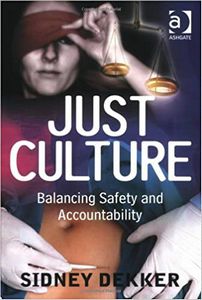Sidney Dekker
"The reason why most people fail to report is not because they want to be dishonest. Nor because they are dishonest. The reason is that they fear the consequences, or have no faith that anything meaningful will be done with what they tell. And often with good reason." (p. 41)
"In fact, once a case goes to court, “truth” will likely be the first to suffer. The various parties may likely retreat into defensive positions from which they will offer only those accounts that offer them the greatest possible protection against the legal fallout." (p. 51)
"We assume that if an outcome is good, then the process leading up to it must have been good too-that people did a good job. The inverse is true too: we often conclude that people may not have done a good job when the outcome is bad." (p. 65)
"The main question for a Just culture is not about matching consequences with outcome. It is this: did the assessments and actions of the professionals at the time make sense, given their knowledge, their goals, their attentional demands, their organizational context?" (p. 72)
"It is the whole point of legal proceedings to narrow in on a few acts by a few individuals or even a single individual. By its very nature, however, this clashes with what we know about accident causation in complex, dynamic systems today." (p. 97)
Andreas Mateou / Sofia Michaelides
Criminal law forms an essential element for a sovereign State in the exercise of its responsibility for enforcing specific domain-related norms as well as for the prevention and sanctioning of unacceptable behaviour. (p. xxi)
In socio-technical systems, remedial action based on safety findings goes beyond those who had the last opportunity to prevent the accident, i.e. the operational personnel, to include the influence of the designers and managers, as well as the structure or architecture of the system. In this approach, the objective is to find what, rather than who, is wrong. (p. 43)
The fear of criminalization is slowly but surely eroding the safety reporting system which has been trusted for many years by frontline aviation professionals. (p. 156)
Willful misconduct which exceeds the limit of acceptable conduct, gross negligence and substance abuse should be prosecuted and punished. However, the line between acceptable and unacceptable behavior is difficult to draw. (p. 159)
Holding aviation professionals accountable for their inadvertent acts and omissions (...) may possibly develop into a Legally Defensive Safety Management (LDSM) approach which may protect aviation professionals, but will not enhance aviation safety. (p. 160)

